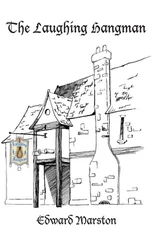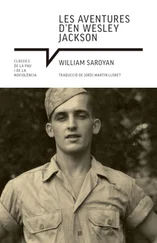“Well, tell me what it is for yourself, then,” Bart said.
“Why should I?” Walz said. “Now, if you were twenty-one, I could tell you a little of it, but as it is, I can’t tell you any of it.”
Bart burst into laughter. Walz began to laugh, too, only he went on laughing. Fanny came and stood in front of him.
“What are you laughing about?” she said.
“You go over there and play,” Walz told his daughter with mock sternness, which might just not have been mock at all, but something he had wanted to do for a long time.
“Oh,” Fanny said. “O.K. I thought it was a joke you could tell me.”
She was gone instantly, indifferently.
“Get yourself three daughters and you’ve got yourself three more wives,” Walz said to Evan. “Wants to know why I’m laughing. Four wives is a lot of wives for one man.” He looked at his glass as if he had never before seen it. “What’s it all about, anyway?” he said suddenly again. Then, looking at Evan, his eyes troubled arid hurt and ashamed, he said, “I can’t drink worth a damn any more. I believe I’m drunk.” He swallowed all of the liquid in his glass, then said, “I hope to Christ you won’t mind if I get a little drunker.”
“I promise to get you and your family safely home if you do,” Bart said.
“Oh, hell,” Walz said. “Can I freshen yours while I’m getting mine?” he said to Evan.
Evan handed him his glass. Walz went to the table, and as he went Bart noticed that he was actually drunk.
“I’ve never seen him this way before,” Bart said. “I mean, so likable. He’s always been a little stuffy. You know how it is in a town like this. Six or seven families visit one another from time to time. Well, every time Warren and May have visited Cody, and I’ve been there, too, he’s always been—well, a little stuffy. I think you’ve been a good influence. I mean——”
He was suddenly embarrassed by what he’d said about a man better than twice his age, talking about him as if he were somebody slightly peculiar or a little inferior.
“I must be getting a little drunk myself,” he said softly and shyly. “A glass of beer, I guess, and I think I’m pretty smart. I hope it’s because I’m so excited about the idea of this voyage.”
Walz came back with Evan’s drink. Bart wandered off to talk to Fay Walz, as if to demonstrate to Evan he knew perfectly well when to shut up and go away.
“I’ve got something to tell you,” Walz said quickly. “I hope you won’t mind. It’s this. I know you’re having a rough time. The reason I know is I am, too. I understand this whole business. I didn’t want to come. I cooked up the excuse about the kids wanting to get away. Well, if there’s anything I can do—and don’t think I don’t know what a fool I must seem—well, I can’t imagine what I could do. I wouldn’t be able to do anything for myself, let alone for somebody else. What I mean is—well, to hell with it. Forget it. I’m sorry I brought it up. Look at that damn middle girl of mine standing on her head. She’ll stay there an hour if she decides she wants to.”
“She’s delightful,” Evan said.
“I’m crazy about her,” Walz said quickly. “I think I’ll let her know.”
He went to the girl standing on her head, put his drink down on the lawn, and tried to stand on his head beside her. The first time he tried he fell back the way he had started, on his feet. He tried again instantly, made it for an instant, then fell flat on his back. He started again, though, very serious about what he was trying to do but getting tired. His wife and Swan, laughing, went to watch. The little girl, still standing on her head, laughed each time her father failed, then said, “You can’t do it, Papa. You’re too fat.”
“I’m not so fat,” Walz said.
Everybody gathered around now, and Evan saw Red stand on his head on the other side of Fanny. Red was able to stay on his head only five or six seconds, though. Walz tried again, made it, and Cody Bone applauded until the women did, too. Then Walz fell flat on his back, and went to sleep.
“Oh, dear,” May Walz said. “He’s drunk.”
Walz opened his eyes.
“I’m not drunk,” he said softly. “I just want to lie here and sleep. Don’t worry about me, May.”
Still standing on her head, Fanny shouted, “Whoever can’t stand on his head is a moron.”
“What’s that?” Red asked Cody Bone. “What’s a moron?”
“Whatever it is,” Cody said, “it’s going to be what I am, because I’m not going to try to stand on my head.”
“Can’t you do it?” Red said. “I can. You saw me, didn’t you?”
“I saw you all right,” Cody said. “I suppose I could do it if I wanted to, but I think I’d rather be a moron.”
“Then, that’s what I’d rather be, too,” Red said.
He ran around in front of Fanny, bent down to be near her head, and said, “We’re all morons, except you, Fanny.”
“I know,” Fanny said.
Everybody sat on the lawn around Fanny. After a moment, Walz sat up to go on drinking, and everybody felt deeply thankful for Fanny, still standing on her head.
He was in the house to get another bottle of Scotch when the telephone bell rang.
“I’m at the airport,” Dade said. “Is there any way we could meet here? I’ll tell you why. There’s a plane back in an hour and a half, and I’ve got to take it. Is my car back yet?”
“No, Dade.”
“Could you borrow a car?”
“Warren Walz and his family are here,” Evan said, “and Cody Bone and his son.”
“Could Bart lend you his car?”
“I think so. I’ll be there as soon as possible.”
He got the bottle, took it out to the table, opened it, poured fresh drinks for all who were drinking Scotch, then said, “A friend of mine’s at the airport for an hour and a half. It’s only half-past nine. I wonder if I could borrow a car and drive in? I won’t be long.”
“Who is it?” Red said. He stood in front of his father.
“Milton Schweitzer,” Evan said. “You remember him, Red. He’s with me at Stanford.”
“Take my car,” Bart said.
“May I?”
“Sure.”
“I won’t be long,” Evan said.
“I want to go with you,” Red said. He seemed almost in a panic. He ran to Swan. “I want to go with my father,” he said. “Mama, don’t you say I can’t go!”
“You can go, Red,” he heard Swan say.
“I want to go, too,” Eva said, running to Swan.
“You can go, too, Eva.”
“No, darling,” Evan said. “You stay here. I won’t be long.”
“No, Papa!” the girl said. “I want to go!”
“No, darling.”
“Papa!” the girl cried when he walked off.
Bart walked with him to the car.
“It takes a moment to get the hang of the old rattletrap,” he said, “but I’m sure you’ll get it soon enough.”
“Papa! Take me. Take me, too!” he heard Eva cry when he started the car.
“You can take her, too, Evan, if you want to,” he heard Swan say.
The girl stood beside Bart, looking up at her father. When the car began to move the girl burst into tears, and ran after the car.
“What does he want?” Red said.
“He just wants to talk to me,” Evan said.
“Why?” Red said. “What’s he want to talk about?”
“We’re in the same department at Stanford. We’re old friends.”
“Are you friends, Papa?”
“Of course we’re friends. You sound scared. What are you scared of?”
“I don’t know,” Red said.
He drove swiftly, wondering why his son had been so eager to go with him, why he seemed so scared. He drove two miles in silence, but as the car plunged down the highway he began to go over the last few minutes: his own absurd lie, answering his son’s question with the first name that had come to mind, Milton Schweitzer, who had come to Stanford to teach playwrighting the semester after Evan had gone there to teach the novel. Just as Evan had had no real success as a novelist, Schweitzer had had none as a playwright. He’d had two plays on Broadway, both flops, and two others that hadn’t gotten farther than Boston or Philadelphia. He was Evan’s own age, or a little older. He was a New Yorker by birth, and he’d gone to Columbia.
Читать дальше












